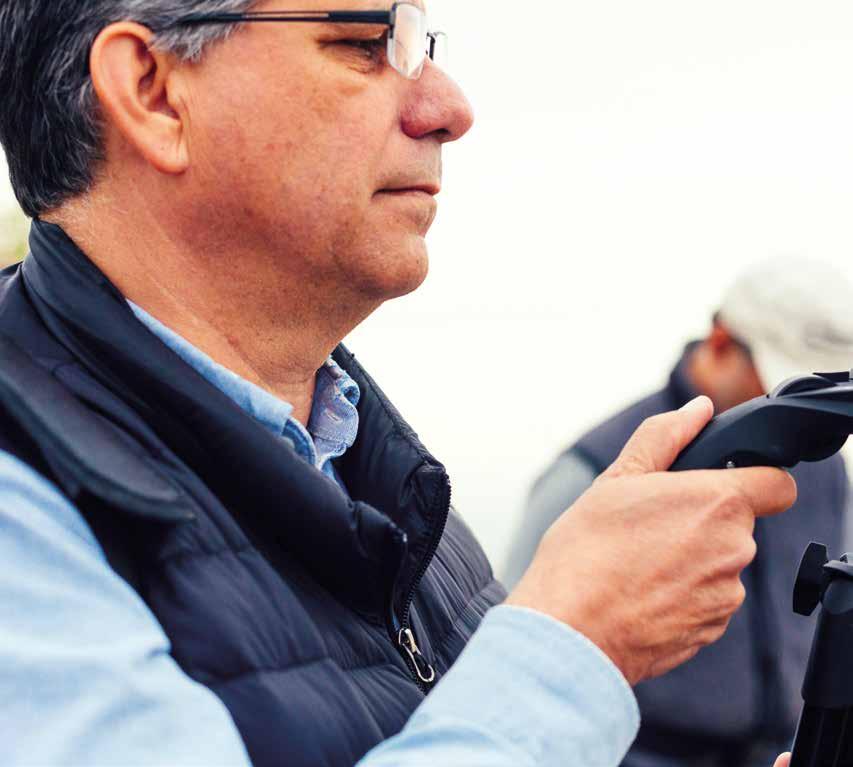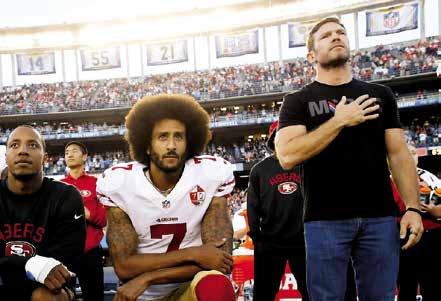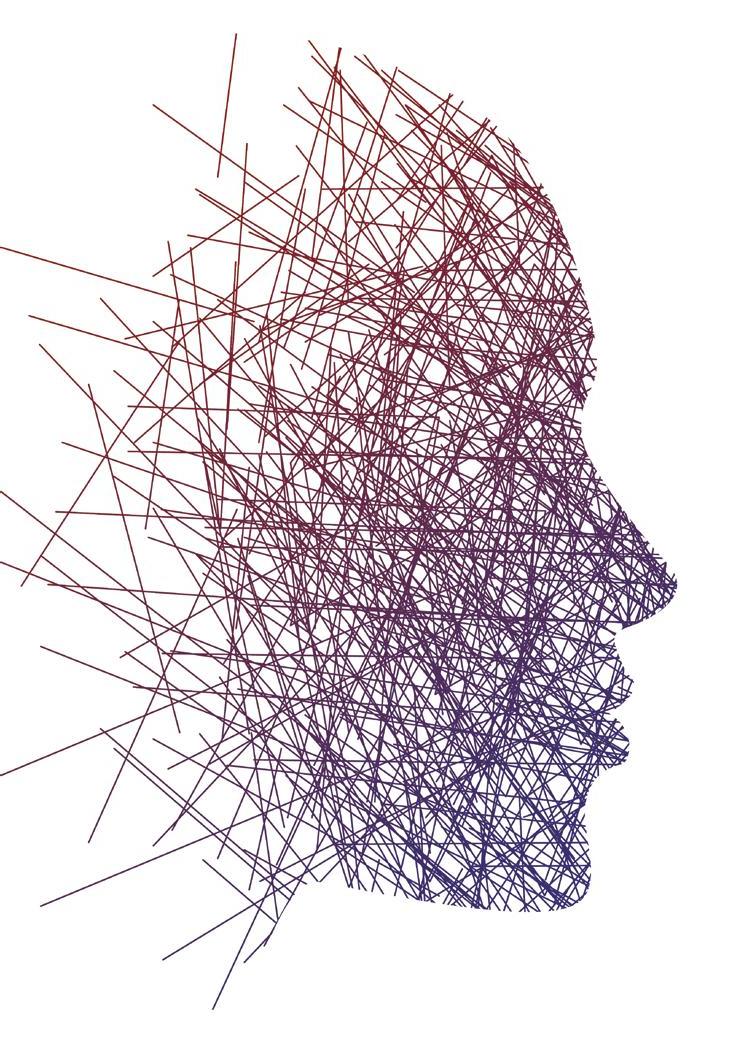
5 minute read
FREEDOM TO WORSHIP: Faith in Each Other
FREEDOM TO WORSHIP
KATE BISCHOFF
Advertisement
Kate Bischoff is an overly enthusiastic, sarcastic, and opinionated management-side employment attorney and human resources professional.
She works closely with management, HR folk, and technology companies to improve organizations and make it easier to recruit and retain talent through having easy-tounderstand policies, easy-to-use technology, and easy-to-explain compliance initiatives.

Prior to starting her own business, Kate served as the HR officer for Consulate General Jerusalem and U.S. Embassy Lusaka, Zambia.
Kate has been recognized by The New York Times, CNN.com, Wall Street Journal, USA Today, National Public Radio, and other journalistic sources as a leading authority on harassment, technology in the workplace, and employment law.
FAITH IN EACH OTHER
by Kate Bischoff
These are the words of prayer shared by Franklin Delano Roosevelt the night of the D-Day invasion at Normandy. FDR’s purpose was to calm an anxious nation that sent 156,000 of its sons, brothers, friends, neighbors, and husbands to storm a beach in a foreign land to save Europe and our country from a fascist regime.
The impact of FDR’s words is not limited to that fateful day though. We all desire the recognition that we’re all in this together, that we must have faith in each other in furtherance of our common purpose. Yet, sometimes, it feels like the world is succeeding at pulling us all apart. We have to work harder to make sure it doesn’t.
How do we stick together? Show faith in each other? To start, we can look back at our founding fathers’ words, “All men are created equal.” We can debate whether the Founding Fathers really meant this given their behavior, or we can take the words at face value and dive into their meaning. What does it mean that “all men are created equal”?
Equality means we all have the same chance. It also means that we’re really not all that different. The color of your skin, the religion you choose to practice, the gender of the person you love doesn’t affect your value to your neighbor whether they are in Mandan or New York City. We all still want life, liberty, and the pursuit of happiness. Our faith in each other means that we don’t hamper the life, liberty, and the pursuit of happiness in our neighbor either. They too can live free and be happy.
To make equality happen, we have to work against our brains. Because our brains are so good at helping us make decision shortcuts, our brains have developed biases against our neighbors. We may instinctively cross the street when we see a young black man in a hoody or avoid chitchat with a woman wearing a hijab while in line for the bathroom because of what we’ve seen in movies or on TV or heard from our friends and family. Logically, we know that a hoody or hijab doesn’t change who a person is or how they will behave towards us, but our brain made the decision for us. So, we have to outsmart our brains.
Working against our brain is incredibly hard. Because of those brain shortcuts, we have to slow down, see the external differences in each other, and consciously decide to treat each other with respect.
Because our biases help our brain make quick decisions, we have to slow the decision process down. In our fast-paced world driven by quick decisions, slowing down has become a near-constant struggle. Taking a beat or a breath when we’re faced with someone who does not look like us or how we think people should look takes practice. Imagine, you’re at a stoplight. The car in front of you—driven by a fellow human—has a bumper sticker with the name of a candidate who you find detestable. When the light changes, are you more of less likely to honk if the car takes a few seconds to step on the gas? Or what if you’re walking into the grocery store and a young woman is struggling with her bags? Are you more or less likely to help her if she is covered in tattoos? We know that the bumper sticker and tattoos shouldn’t affect our behavior, but they do. The breath we need to take is to ask if the bumper sticker or the tattoos is changing how we should treat another human.
Once we’ve taken the breath, we need to see our differences. What makes us different is our experiences and relationships. Our skin color defines who we are because we have different experiences, privileges, and disadvantages because of it. Our religious beliefs may affect when, how, or whether we worship while for some their faith is a huge part of who they are. This applies to nearly every difference between two people, whether that be gender, sexual orientation, race, marital or familial status, etc. We can’t pretend that we’re not all different. When we say we’re colorblind or don’t care about differences means that we don’t appreciate that we all are different. Seeing these differences appreciates what makes us all unique. However, our differences should not affect our approach to one another.
Logic tells us that we all have a heart, a family, friends, and people and things that we value. We also know that every person is deserving of our respect. Our differences should not affect our respectful treatment and kindness with each other. I will help the tattooed young woman when her groceries spill out over the parking lot, I will not honk just because the car has the hateful bumper sticker, I will not cross the street because of a hoody, I will say hello to my fellow bathroom-line waiters. The breath we need to take relies less on the shortcuts in our brain than the recognition of the difference and commitment to respect and kindness.
The commitment to respect and kindness also relies on our faith in each other. FDR wanted us all to believe that we could overcome the obstacle of the largest military invasion in history because we were in it together. He rightfully believed when we work together we can overcome obstacles to help each other be free and happy. This working together—even if we’re not fighting a war or a common enemy—ensures that we can all be different while achieving our goals of life, liberty, and pursuing happiness regardless of how elusive happiness might be.







